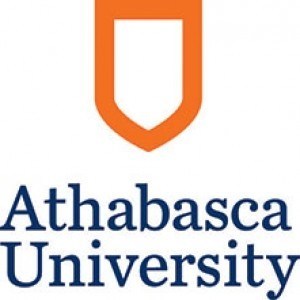Photos of university / #stfxuniversity
The Bachelor of Science in Nursing (BScN) program at St. Francis Xavier University is a comprehensive undergraduate degree designed to prepare students for a rewarding career in healthcare. This program combines rigorous academic coursework with practical clinical experiences, enabling students to develop the essential knowledge, skills, and attitudes required for professional nursing practice. Throughout the program, students engage in a variety of learning activities, including lectures, laboratories, simulations, and clinical placements in diverse healthcare settings. The curriculum covers fundamental topics such as human anatomy and physiology, microbiology, psychology, ethics, and nursing theory, providing a solid foundation for understanding patient care and health promotion. Emphasizing critical thinking, evidence-based practice, and compassionate care, the program aims to produce competent and caring registered nurses ready to serve communities across Canada and beyond. Students will have opportunities to participate in research projects, interprofessional education, and community outreach, fostering a holistic approach to health and wellness. The program is designed to meet accreditation standards and prepare graduates for licensure examinations, ensuring they are well-equipped to enter the workforce. Graduates of the Nursing program at St. Francis Xavier University often pursue diverse career paths, including clinical practice in hospitals, community health, public health agencies, and specialized nursing fields. The university's supportive faculty and state-of-the-art facilities create an enriching learning environment where students can thrive academically and personally. Ultimately, the Bachelor of Science in Nursing program at St. Francis Xavier University is committed to developing skilled, ethical, and compassionate nurses who will make a positive impact on individual patients and society as a whole.
The Bachelor of Science in Nursing (BScN) program at St. Francis Xavier University is a comprehensive and dynamic undergraduate degree designed to prepare students for a rewarding career in healthcare. This program provides students with a solid foundation in nursing theory, practice, and research, equipping them with the skills needed to deliver high-quality patient care in diverse settings. The curriculum combines classroom-based learning with clinical experiences, ensuring students gain hands-on training in real-world environments such as hospitals, community health agencies, and long-term care facilities. Throughout their studies, students explore a wide range of topics including anatomy, physiology, microbiology, pharmacology, health assessment, and nursing ethics.
The program emphasizes the development of critical thinking, communication, and leadership skills essential for effective nursing practice. Students are encouraged to engage in collaborative learning, participate in simulation labs, and undertake community-based projects to deepen their understanding of patient-centered care. Interprofessional education is also a key component, fostering teamwork and interdisciplinary collaboration. The program prepares graduates to pass licensing examinations and pursue employment in various healthcare settings, including acute care, primary care, mental health, and community health. In addition, the BScN degree provides a strong foundation for those interested in graduate studies or specialized nursing fields. Graduates of the program are committed to promoting health, preventing illness, and advocating for patients' needs, embodying the core values of compassion, integrity, and professionalism. With personalized support from faculty members who are experts in their fields, students benefit from a supportive academic environment that nurtures their development into competent and confident nursing professionals.
Program requirements for the Bachelor of Science in Nursing (BScN) at St. Francis Xavier University include a combination of academic coursework, clinical practice, and prerequisite courses. Applicants must have completed the necessary high school credits, including biology, chemistry, and mathematics, with a minimum grade point average as specified by the university. Admission typically requires a competitive average, along with completion of the Nursing Application Form and submission of official transcripts. Prospective students must also demonstrate a strong academic record in science courses, as well as participate in an interview process that assesses suitability for the nursing profession. Upon acceptance, students are expected to complete foundational courses in anatomy, physiology, microbiology, and psychology, which lay the groundwork for advanced nursing studies. Clinical requirements include supervised practical experiences in various healthcare settings, such as hospitals and community clinics, to develop hands-on skills in patient care, health assessment, and nursing procedures. Students must also meet the immunization and health screening requirements mandated by clinical agencies. Throughout the program, students are evaluated through examinations, coursework, and clinical evaluations to ensure they meet the competencies required for professional nursing practice. Graduate students seeking advanced practice roles may need to fulfill additional certification or licensing requirements, including successful completion of the National Council Licensure Examination for Registered Nurses (NCLEX-RN). The program emphasizes the integration of theoretical knowledge and practical skills, critical thinking, and ethical decision-making, preparing graduates to deliver safe, effective, and compassionate nursing care in diverse healthcare environments. Continuous professional development and adherence to the College of Registered Nurses of Nova Scotia (CRNNS) standards are also emphasized throughout the programme.
Want to improve your English level for admission?
Prepare for the program requirements with English Online by the British Council.
- ✔️ Flexible study schedule
- ✔️ Experienced teachers
- ✔️ Certificate upon completion
📘 Recommended for students with an IELTS level of 6.0 or below.
The Nursing program at St. Francis Xavier University offers a variety of financing options to support students throughout their academic journey. Tuition fees are established annually and vary depending on the residency status of the student. For Canadian residents, the average tuition fee for undergraduate Nursing students is approximately CAD 8,000 per year, whereas international students may pay higher fees, around CAD 20,000 annually. In addition to tuition, students should budget for ancillary expenses including textbooks, supplies, uniforms, and personal living costs.
St. Francis Xavier University provides numerous financial aid opportunities, including entrance scholarships, which are awarded based on academic achievement and leadership qualities. These scholarships can significantly offset the cost of tuition and are available to both new and returning students. In addition, the university offers need-based bursaries, which are awarded to students demonstrating financial hardship. To be considered for these financial aids, students must complete the appropriate application forms and provide proof of income.
Students enrolled in the Nursing program are encouraged to apply for provincial and federal student loans, such as the Canada Student Loans Program (CSLP), which offers low-interest loans to eligible students. These loans can help cover tuition fees and living expenses and are repayable after graduation. Work-study programs are also available, providing part-time employment opportunities on or near campus, enabling students to earn money while gaining relevant work experience.
St. Francis Xavier University also promotes private sponsorship and external awards through various foundations and organizations. Many Nursing students benefit from scholarships and bursaries provided by healthcare foundations, community organizations, and professional nursing associations. It is recommended that students explore these opportunities early in their academic planning process to maximize their financial support.
Furthermore, the university's financial services office offers guidance and counseling to help students develop personalized financial plans. They assist students with budgeting, understanding loan repayment options, and navigating the application processes for aid programs. universities often emphasize the importance of financial planning to ensure students can successfully complete their studies without unnecessary financial stress.
In summary, the Financing studies of the Nursing program at St. Francis Xavier University encompass a range of options, including government aid, university scholarships, bursaries, work opportunities, and external funding sources. Students are encouraged to research and apply for all applicable financial assistance programs early to secure adequate funding for their studies. This comprehensive support network facilitates access to quality nursing education while minimizing financial barriers.
The Bachelor of Science in Nursing (BScN) program at St. Francis Xavier University is designed to prepare students for a career in professional nursing within a variety of healthcare settings. The program emphasizes a comprehensive curriculum that integrates theoretical knowledge with practical clinical experience, enabling students to develop the skills necessary to provide high-quality patient care. Students engage in coursework covering the sciences, nursing theory, health promotion, pharmacology, and ethics, along with hands-on learning in hospitals, community clinics, and other healthcare environments. The program aims to foster critical thinking, communication, and leadership skills, ensuring graduates are well-equipped to meet the diverse demands of the nursing profession. Admission requirements typically include completed prerequisites in sciences and a strong academic record, along with a demonstrated interest in healthcare. The program incorporates modern teaching methods, including simulation labs and community-based learning, to enhance practical competence. Upon graduation, students are eligible to write the licensure exam to become registered nurses, with opportunities for advanced specialization, graduate studies, and continuous professional development. The university’s nursing faculty is committed to supporting students through mentorship, research opportunities, and collaborations with healthcare organizations, preparing graduates to contribute effectively to the health and well-being of individuals and communities across Nova Scotia and beyond.



